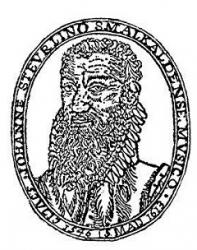Composer (part 1): Johann Steuerlein

Johann Steuerlein (b. Schmalkalden, Thuringia, Germany, 1546; d. Meiningen, Germany, 1613) studied law at the University of Wittenberg. From 1569 to 1589 he lived in Wasungen near Meiningen, where he served as town clerk as well as cantor and organist in the Lutheran church. From 1589 until his death he lived in Meiningen, where at various times he served as notary public, mayor, and secretary to the Elector of Saxony. A gifted poet and musician, Steurlein rhymed both the Old and New Testaments in German. A number of his hymn tunes and harmonizations were published in Geistliche Lieder (1575) and Sieben und Zwantzig Neue Geistliche Gesenge (1588).
Bert Polman
Go to person page >Composer (part 2): Melchior Vulpius
Born into a poor family named Fuchs, Melchior Vulpius (b. Wasungen, Henneberg, Germany, c. 1570; d. Weimar, Germany, 1615) had only limited educational opportunities and did not attend the university. He taught Latin in the school in Schleusingen, where he Latinized his surname, and from 1596 until his death served as a Lutheran cantor and teacher in Weimar. A distinguished composer, Vulpius wrote a St. Matthew Passion (1613), nearly two hundred motets in German and Latin, and over four hundred hymn tunes, many of which became popular in Lutheran churches, and some of which introduced the lively Italian balletto rhythms into the German hymn tunes. His music was published in Cantiones Sacrae (1602, 1604), Kirchengesangund Geistliche Lieder…
Go to person page >

 My Starred Hymns
My Starred Hymns




